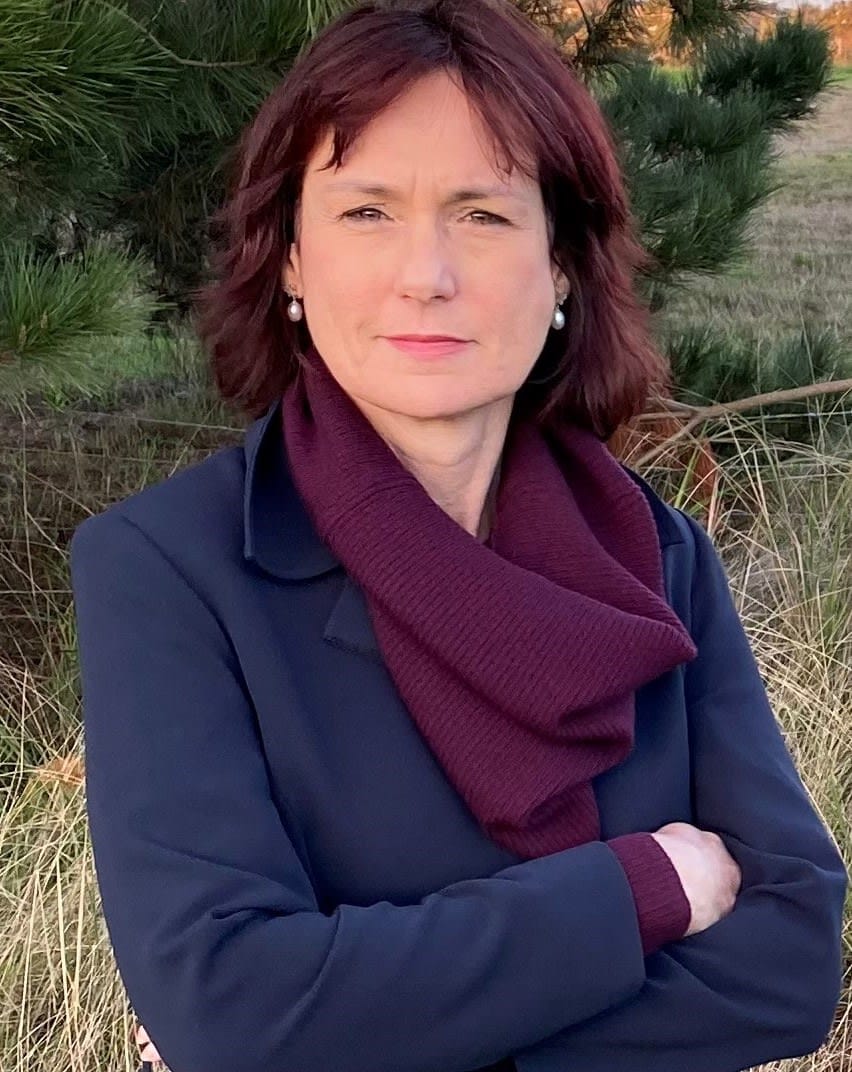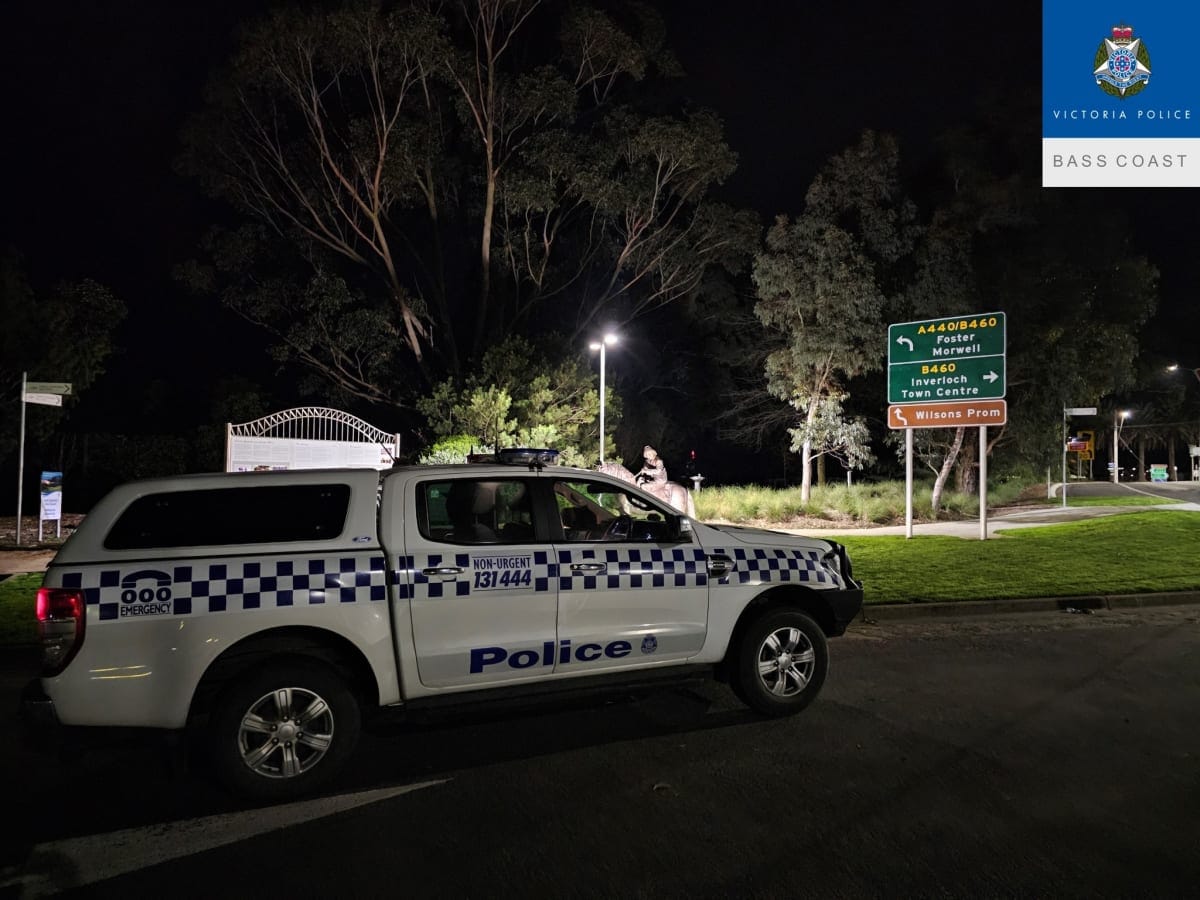Single officer police stations should be supported, not white-anted, they say
IT STANDS to reason that if there are 800 vacancies in police ranks and a further 900 officers absent for work-related injuries and long-term leave, something’s got to give. And increasingly, according to Chief Executive Officer at the Police...

IT STANDS to reason that if there are 800 vacancies in police ranks and a further 900 officers absent for work-related injuries and long-term leave, something’s got to give.
And increasingly, according to Chief Executive Officer at the Police Association Victoria, Wayne Gatt, it’s one-officer sites or smaller rural police stations that are impacted.
Meeniyan Police Station is a typical example.
While locals appreciate the efforts of their local cop on the beat, Leading Senior Constable Paul McDonald, he’s often called in to support at Leongatha and elsewhere, and they understand the need for that, but see a police presence as a major plus.
“It’s nice to see his car in there or driving around but it’s pretty hard to catch him,” said a local business operator.
“It would be good if they had the police to man these small stations on a more regular basis.”

So, what is the future of these single-officer stations if the people placed there are constantly being called in to support colleagues, and a more pressing workload in the bigger centres.
Mr Gatt recently spoke to ABC Gippsland about the issue, prompted by articles in the city press, that police officers from 98 one-person stations in small towns “will be forced from their posts and rostered out to larger regional centres and cities” to fill an increasing number of vacancies.
Mr Gatt told the ABC that while officers at one-person stations and small-town stations were being increasingly called in, the rules hadn’t been changed to support a wholesale shift, not yet anyway.
“Well, I don't know if it’s happening just yet. I think what's been reported in today's papers is advice from Victoria Police to its workforce that it’s saying that it’s part of enterprise negotiations.
“They want to talk to the police association, and they want to talk to our members more broadly by extension of that, about making it easier to move people from those single officer response zones into other places.
“I will say the course they're talking about is light on the detail. It doesn't provide a lot of guidance, and it's hard for us to establish, at this point in time, exactly what it is that Victoria Police want out of that arrangement, but it has caused some of our members, particularly our regional members to question and to wonder, well, what is that going to mean for people in our local community.”
Asked what it would mean for individual members in these smaller stations, Wayne Gatt said the members were especially concerned that it would diminish service delivery to their towns.
“The employer is saying to them that they want to increase the mobility for deployment and rostering of single officer employees and that's all well and good, but at the end of the day, what they're concerned about is, for example, if the single officer is not there two or three times-a-week then the community is going to see a diminished policing service in that area.
“And that stands to reason, and it's a natural concern for our members to have. That's something that they're deeply concerned about.
“One thing about our members in regional Victoria is that they have a very deep and personal connection with their communities because, perhaps more than any of our members, they live and are completely embedded within those communities and they really are caring deeply for their communities, often put their interests ahead of their own and they say we have an obligation to be here to support and we want to do just that. But they're worried that this might take them away from that commitment that they have to their local community.”
He discussed how important these one-man stations were to police members and also to the communities who might have fought hard to retain them.
“Absolutely, I've never worked at a single office station but I did work at a station with three officers, in a community in western Victoria and I can tell you now that you're not just a police officer, you’re a counsellor, your marriage counsellor, your dispute resolver, you're a community organiser. You're one of those people that helps hold the community together and local regional communities can go through a really tough times with limited support from the big smoke at times and the police officers in these areas perform an amazing job of being part of that connection that keeps the community healthy and safe.
“It also has a primary policing role to play in keeping people safe and reducing crime and making the places that we know and enjoy to be relatively safe areas and communities, making sure they stay that way.
“And there's an emergency response component that's often underrated in these local areas, that local knowledge of the area means so much. When police resources from the city roll out, they often look to that single officer who says, I'll show you how it's done out here and I'll show you where everything is. And I'll show you where all the people live, where the issues are.
“And you know, we just can't put a price on that local knowledge and that connection with community and it's important that it remains.
“As the association representing police officers that work in regional community, we're really not interested in anything that diminishes that connection with the community. We've seen that it’s so important.”
He went on to say that local police were concerned that smaller communities might lose out as a result of the proposed changes and they were keen to see that locals were part of the conversation as a change in police policy of this kind, would impact service delivery in these smaller towns and their surrounding areas.
But Mr Gatt also acknowledged that the policy consideration was likely driven by a severe shortage of police officers.
“Victoria Police, at the moment, has about 800 vacancies across its ranks. In addition to that there's about 900 police officers out on work related injuries and on long-term absences from the workplace, which is a hell of a lot of police officers not at work. And what comes from that, the natural consequences is you have these massive holes in police stations and we have vacancy rates that are very, very high in the bigger 24-hour police stations.
“And from time to time they drawn on officers from rural and regional non-24-hour police stations and single officer stations into those centres to try and help out and we get the need for that, the need for a Bairnsdale to have to draw on support from the smaller outposts to help out at times.
“And our single-officer stations, they're really good at doing that. They do support, they do help out.
“But you know, when the government gets its act together and finally gets enough police back into Victoria Police and we fill those gaps, what we don't want to be left with is an agreement that's forgotten about regional communities.
“I think that's why they're raising this publicly. We haven't put this debate out there, our members have put this debate out there and credit to them too, because they're ventilating an issue they're worried will be left when the dust settles and we are too,” the police association CEO said this week.
‘Hands off’, says Melina Bath MP
Nationals Member for Eastern Victoria, Melina Bath, has also weighed in, labelling the State Government’s plans “to strip country towns” of their single police officer stations as “outrageous”.
And she said she would be raising the issue in parliament this week, calling on Labor to get its hands off rural one-officer police stations.
“This move threatens to leave rural communities without a policing presence and sends a signal that the safety and protection of our rural communities doesn’t matter,” said Ms Bath.
“Given the multi-faceted role of single-officer stations, it will undoubtably result in a rise in crime and decline in community safety and wellbeing in these areas.
“Labor’s plan to prop up rosters across 24-hour stations is a mere band aid fix for failing government policy and poor decisions which are resulting in police officers leaving the force in record numbers.”
She said 11 of Victoria’s 98 single-officer police stations are located in eastern Victoria, including Boolarra, Briagolong, Bruthen, Lang Lang, Loch Sport, Loch, Meeniyan, Mirboo North, Rawson, Stratford, and Swifts Creek.
Ms Bath said these rural single-officer stations have much in common; each have a stream of tourists passing through, are located in prime agricultural districts and poor road maintenance and safety is a serious issue for locals and unsuspecting visitors.
“The Nationals fiercely oppose the diminishing of police resources in our rural areas, we need more cops not less.
“The loss of single-officer stations equates to further pressure on incident response times.
“In our small towns, the locally-based police officer is a trusted public figure – proactively maintaining community safety, with on the ground ‘know-how’ and local knowledge.
“Our rural communities should never be punished by the government’s failures in maintaining staffing in 24-hour police stations.
“I’m calling for Labor to fix its issues with police recruitment and retention and keep its hands off our single officer rural police stations.”






